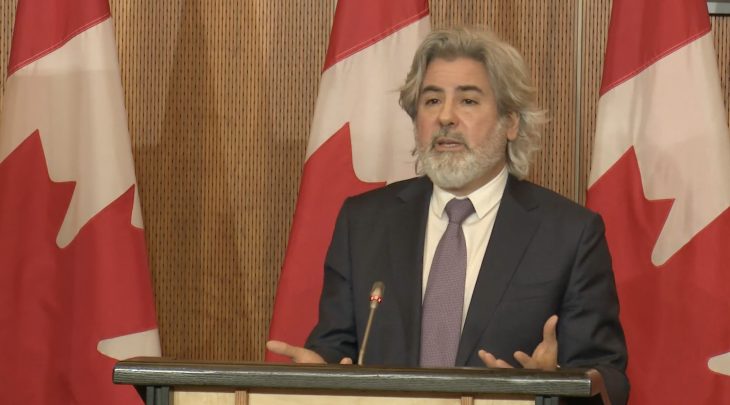
OTTAWA — Minister of Canadian Heritage Pablo Rodriguez (above) and Minister of Justice and Attorney General of Canada David Lametti announced today a new expert advisory group on online safety as the next step in developing federal legislation to address harmful online content.
The expert advisory group “will be mandated to provide advice on a legislative and regulatory framework that best addresses harmful content online,” reads a government press release.
The announcement comes after the Canadian government said in February it planned to engage a group of experts to help it revise its proposed framework after its public consultation on the matter met with criticism from intervenors, several of whom raised concerns about the government’s site-blocking proposal, which would require telecom service providers to block repeatedly offending sites.
“Canadians should be able to express themselves freely and openly without fear of harm online. We conducted a consultation last year and released the What We Heard Report earlier this year. It’s clear that harmful online content is a serious problem, but there is no consensus on how to address it,” said Rodriguez, in the government’s press release.
“We’re asking the expert advisory group to go back to the drawing board. We need to address this problem openly and transparently as a society. I’m grateful to the experts who will dedicate their time and experience in the next few months to helping us tackle this complex issue. It’s too important to not get right,” Rodriguez said.
The expert advisory group, composed of diverse experts and specialists from across Canada, includes:
- Amarnath Amarasingam, assistant professor, School of Religion, Queen’s University
- Bernie Farber, chair, Canada Anti-Hate Network
- Chanae Parsons, community activist and youth engagement specialist
- David Morin, full professor, Faculty of Arts and Humanities, Université de Sherbrooke
- Emily Laidlaw, associate professor, Faculty of Law, University of Calgary
- Ghayda Hassan, professor of clinical psychology, Université du Québec à Montréal
- Heidi Tworek, associate professor, School of Public Policy and Global Affairs and History, University of British Columbia
- Lianna McDonald, executive director, Canadian Centre for Child Protection
- Pierre Trudel, professor, Faculty of Law, Université de Montréal
- Signa A. Daum Shanks, associate professor, Faculty of Law, University of Ottawa
- Taylor Owen, Beaverbrook chair, Media, Ethics and Communications
- Vivek Krishnamurthy, Samuelson-Glushko professor of law, University of Ottawa
The advisory group will hold nine workshops to discuss various components of a legislative and regulatory framework for online safety. They will also engage with additional stakeholders, including with digital platforms, the release says.
“The work of the expert advisory group will be open and transparent. The group’s mandate, the supporting materials for each session, and non-attributed summaries of all sessions and discussions will be published,” the release reads.
Summaries after each meeting of the expert advisory panel will be published on the government’s website here.
“Too many people and communities are victimized by harmful online content that is often amplified and spread through social media platforms and other online services,” said Lametti, in the release.
“The Government of Canada believes that Canadians should have protection from harmful online content, while respecting freedom of expression. The creation of the expert advisory group on online safety shows our commitment to taking meaningful action to make our online environment safer and more inclusive for all Canadians.”
For more information, please click here.
Screenshot of Minister of Canadian Heritage Pablo Rodriguez taken from today’s press conference.



